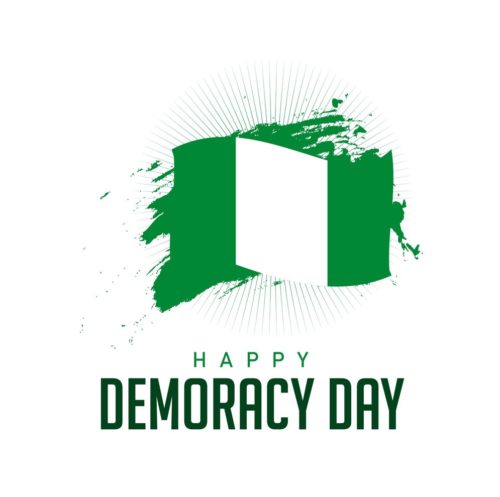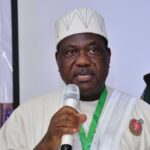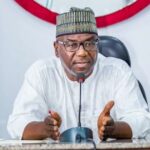June 12, 2023, presents another opportunity for Nigerians to celebrate the unbridled transition of political power from one administration to another, especially in the light of the change of baton from now ex-President Muhammadu Buhari to President Bola Ahmed Tinubu on May 29, 2023.
From Nigeria’s political experience in the last 24 years, from 1999 to 2023, it seems the era of military intervention in the country’s political leadership is far behind Nigeria. Over this period, the country has practised features of a democratic system: regular elections, open decision-making process, right to vote and be voted for, respect for basic human rights, presence of a vibrant civil society, open competition for political power through viable political parties, freedom of association, separation of power, and the rule of law.
However, Nigeria’s democracy is far from being consolidated, due to the lack of internal party democracy. Democratic consolidation has to do with the erection of concrete institutions (rules) that politicians agree upon and citizens are willing to support in a specific context. It is not just about conducting one election after another, but adhering strictly to the letter, spirit and principles of democracy. In this regard, there is an acute deficit of democratic culture in political parties, creating bitterness, chaos, and the ugly habit of politicians decamping from one party to another.
Over the last 24 years, Nigeria has endured a system in which parties’ machinery is always hijacked by a few moneybags, so-called godfathers, and party leaders in government who lord it over other party members – and even executives.
- Fulfil your promise to catholic bishops – Kaigama tells Tinubu
- Subsidy removal: Road transportation costs compete with airfares
For a party to be said to have true internal democracy, there must, first and foremost, be the distribution of power among members of its executive council. Power should not be concentrated in the hands of a small group of people, to avoid its abuse. In Nigeria, the opposite has been the case, where few party leaders decide who gets what. These powerful elements sometimes circumvent the primary electoral process to give parties’ election tickets to their favourite aspirants, even if such decisions were opposed by other executive members.
In decision-making, the top-to-bottom approach, as we find among political parties, is not in tandem with the tenets of internal party democracy. In the top-to-bottom decision-making process, no deliberate attempts are made to seek the opinion of the grassroots members of the party. This lack of consultation with members of the party is glaring in what parties refer to as parties’ ‘consensus candidates’ during elections; such candidates may be the choice of a few elite who superintend over the party, not that of the teeming members of parties.
There is also a lack of inclusiveness, as minority demographics are never carried along in parties’ activities. So also is the lack of transparency and accountability, especially in the finances of political parties. Party funds are sometimes stolen by few powerful and untouchable individuals, who are never called to account for how such resources were expended. In 2011, a Peoples Democratic Party (PDP) presidential aspirant, Sarah Jibril, had to write a petition to the leadership of the party over what she called gross mismanagement and misappropriation of funds, though no serious investigation was conducted into the complaint.
The electoral umpire, Independent National Electoral Commission (INEC), has the responsibility of monitoring the finances of political parties, but it rarely carries out this assignment. Party funds are taken as the personal property of political party chieftains, which is antithetical to the principles of transparency, accountability and institutionalization of systems in a consolidated democracy.
It is not difficult to spot the consequences of the lack of internal party democracy in Nigeria. First is the factionalization of political parties, both at national and sub-national levels. Until the INEC opened the floodgate for multiple parties’ registration, the leading political parties were factionalized, with separate executives, and parallel groups loyal to certain party figures at various levels.
Now that many political parties are recognized, party members who are bitter about discriminatory practices they were subjected to in bigger parties migrate to smaller political parties to express their ambition. The situation in many parties is captured in a 2011 statement by former Governor Gbenga Daniel of Ogun State, who said, “The politics of imposition was responsible for instability in the polity…”
In recent years, intra-party squabble has been responsible for violence in some states, where thugs are unleashed on political opponents, leading to killings and destruction of opponents’ valuable property. Parties’ guidelines are abused or twisted, making it impossible for citizens and party members to participate in the choice of candidates who stand for elective positions.
Due to the absence of internal party democracy, it has been difficult for the country to consolidate its democracy. What has existed so far, may at best be considered as ‘civil rule’, as against military rule, but not democracy as a system that encourages popular participation by all.
As Nigeria marks another Democracy Day and enters a new dispensation, it is important for the leadership of our political parties to keep to the principles of internal party democracy, else the system would continue to breed discontent, bitterness, anger and disillusionment among the people, a situation that could endanger the country’s democracy.




